Fix
You need to rename your function from my_exit to syscall__exit_group.
Why does this matter? BPF programs named in this way get special handling from BCC. Here's what the documentation says:
8. system call tracepoints
Syntax: syscall__SYSCALLNAME
syscall__ is a special prefix that creates a kprobe for the
system call name provided as the remainder. You can use it by
declaring a normal C function, then using the Python
BPF.get_syscall_fnname(SYSCALLNAME) and
BPF.attach_kprobe() to associate it.
Arguments are specified on the function declaration:
syscall__SYSCALLNAME(struct pt_regs *ctx, [, argument1 ...]).
For example:
int syscall__execve(struct pt_regs *ctx,
const char __user *filename,
const char __user *const __user *__argv,
const char __user *const __user *__envp)
{
[...]
}
This instruments the execve system call.
Source.
Corrected Code
from bcc import BPF
def main():
bpftext = """
#include <uapi/linux/ptrace.h>
void syscall__exit_group(struct pt_regs *ctx, int status){
bpf_trace_printk("%d", status);
}
"""
bpf = BPF(text=bpftext)
fname = bpf.get_syscall_fnname('exit_group')
bpf.attach_kprobe(event=fname, fn_name='syscall__exit_group')
while True:
print(bpf.trace_fields())
if __name__ == '__main__':
main()
Output from the sample program exiting:
(b'<...>', 14896, 0, b'd...1', 3996.079261, b'5')
How it Works
After BCC transforms your BPF program, this results in a slightly different interpretation of the arguments passed. You can use bpf = BPF(text=bpftext, debug=bcc.DEBUG_PREPROCESSOR) to see how your code is transformed.
Here's what happens without the syscall__ prefix:
void my_exit(struct pt_regs *ctx){
int status = ctx->di;
({ char _fmt[] = "%d"; bpf_trace_printk_(_fmt, sizeof(_fmt), status); });
}
This reads in the RDI register and interprets it as the syscall argument.
On the other hand, here's what happens if it's named syscall__exit_group:
void syscall__exit_group(struct pt_regs *ctx){
#if defined(CONFIG_ARCH_HAS_SYSCALL_WRAPPER) && !defined(__s390x__)
struct pt_regs * __ctx = ctx->di;
int status; bpf_probe_read(&status, sizeof(status), &__ctx->di);
#else
int status = ctx->di;
#endif
({ char _fmt[] = "%d"; bpf_trace_printk_(_fmt, sizeof(_fmt), status); });
}
If the CONFIG_ARCH_HAS_SYSCALL_WRAPPER is defined (it is on x86_64) then the RDI register is interpreted as a pointer to a struct pt_regs, which looks up the RDI register in that, which is the first argument to exit_group().
On systems without syscall wrappers, this does the same thing as the previous example.
